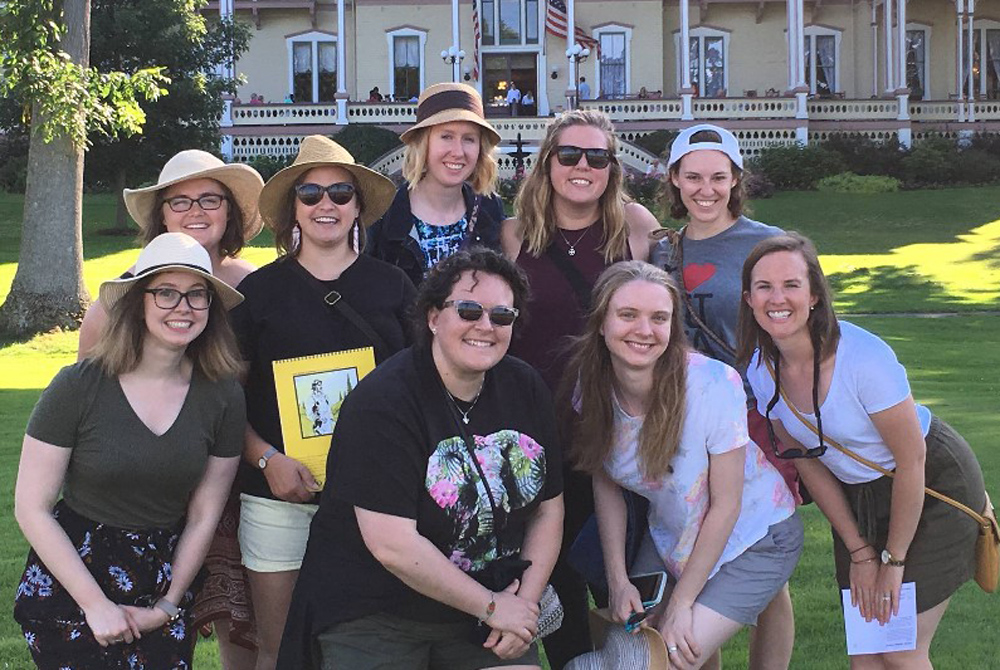
Attendees of the Joan Chittister Institute for Contemporary Spirituality; Top row, from left: Allison Connelly, Lisa Cathelyn, Jessie Bazan, Liz Palmer, Breanna Mekuly. Bottom row, from left: Eliza Biddle, Meghan Dandrea, Ellen Jewett, and Teresa Coda (Provided photo)
Many know Benedictine Sr. Joan Chittister as a prolific author and speaker, but her latest project takes a new tack: Dear Joan Chittister: Conversations with Women in the Church, is a collaborative effort with 10 other women.
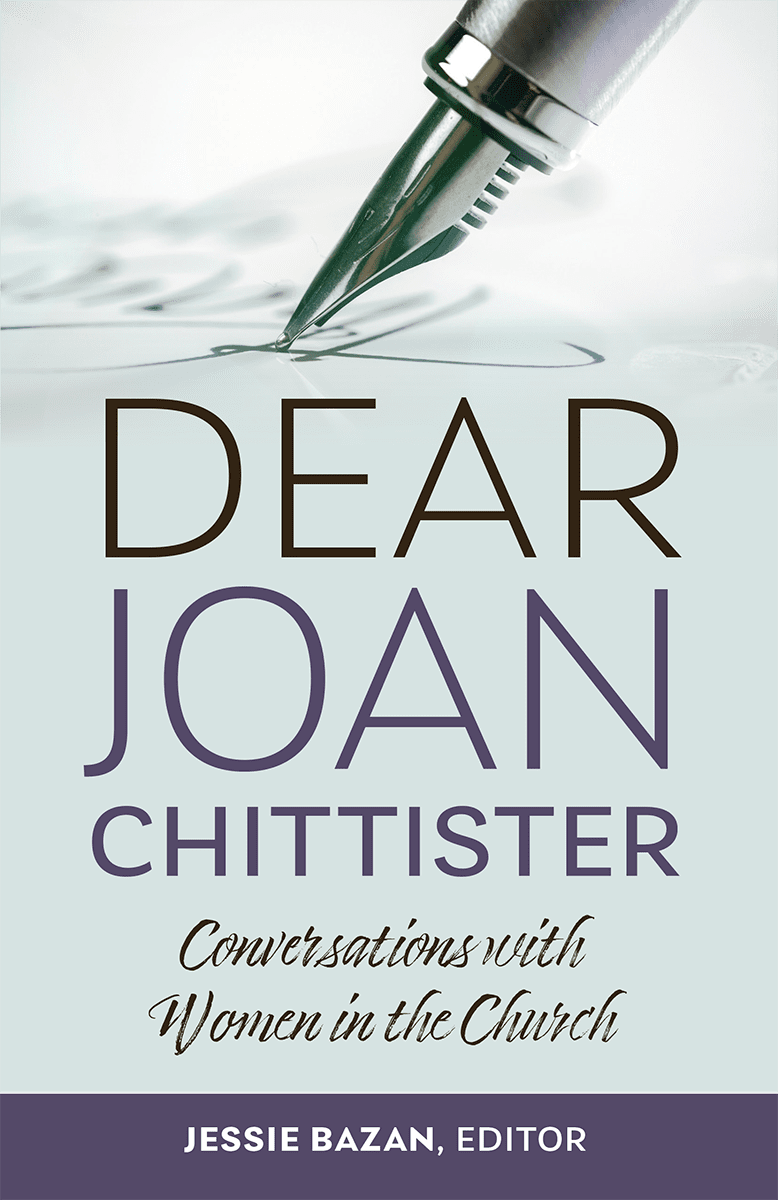
Editor Jessie Bazan said the idea for Dear Joan Chittister emerged from the time she and the book's coauthors spent with Chittister at the first Joan Chittister Institute for Contemporary Spirituality, which brought together young, female-identifying Catholic theologians in Erie, Pennsylvania.
"It was a group that sparked right at the beginning," Bazan said. "We spent a lot of time with Sister Joan and had lots of great conversations together about what it means to be a woman in ministry and the challenges that we face in our particular context as young, progressive-leaning women."
As part of the institute, each participant created a project or presentation for the group, a process that inspired Bazan to propose what would become Dear Joan Chittister.
"Our conversations were so rich," Bazan said. "We wanted those conversations to continue ... but also offer the chance for others to join in the conversation. I thought, 'Oh, why not see if Joan wants to write a book together? The worst she can say is no.' But she was on board right away."
Dear Joan Chittister unfolds as a series of letters from the authors to Chittister, a format inspired by both the authors' desire for an intimate way to share their often very personal stories and Chittister's long-standing correspondence with followers all over the world.
Each letter deals with an issue of "Sisterhood," "Speaking Our Truths," and "Standing Up to Patriarchy" — themes Bazan said emerged "very organically" from the women's conversations in Erie.
"We did take a couple of weeks of discernment, because this is very vulnerable sharing. It's risky to tell your truth — we had someone write her experience of coming out as a gay woman and someone write about their experience of abuse in the church," Bazan said. "And all of us know and live out the value of discernment, so we spent the time discerning and praying about that."
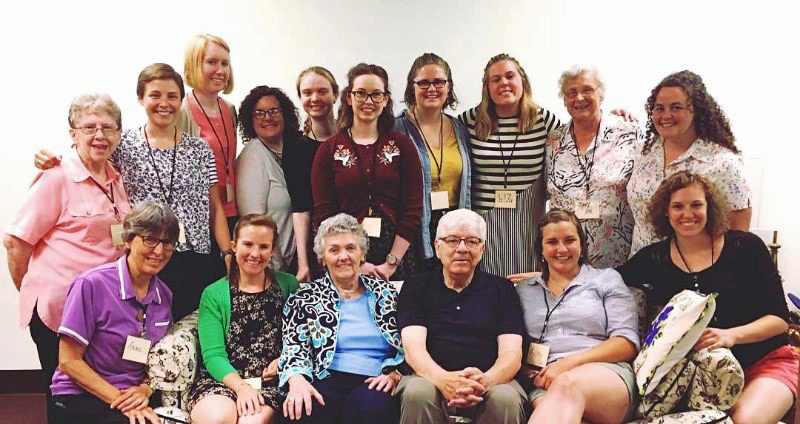
Attendees of the Joan Chittister Institute for Contemporary Spirituality with the institute's staff and Benedictine Sr. Joan Chittister. Top row, from left: Benedictine Sr. Mary Ellen Plumb, Benedictine Sr. Val Luckey, Jessie Bazan, Meghan Dandrea, Ellen Jewett, Eliza Biddle, Allison Connelly, Liz Palmer, Benedictine Sr. Mary Lou Kownacki, and Jacqueline Small. Bottom row from left: Benedictine Sr. Anne McCarthy, Teresa Coda, Chittister, Tom Roberts, Lisa Cathelyn, and Breanna Mekuly (Provided photo)
Author Teresa Coda said the group initially asked Chittister to respond to the letters as a whole at the end of the book, but Chittister eventually decided to respond to each individually, an experience Coda called "very inspiring and gratifying."
"The book ended up being a lot longer than we thought, because Joan ended up responding to every letter," Bazan said. "She goes to Ireland every year to write, and this was the project she brought with her to Ireland this year. So at 4 a.m. my time, I get this beautiful email from Joan saying how really deeply ouched she was by our stories and was struggling with the word count because she wanted to give them the attention that she thought they deserved."
Author Lisa Cathelyn said that she had a deeply personal, one-on-one conversation with Chittister during the institute and saw her contributions to the book as a way to share that experience with others.
"That was a private and sacred moment, so to have this opportunity to … kind of offer a window into the power of relationships between and among women, I think was a really fun and moving and touching experience," Cathelyn said.
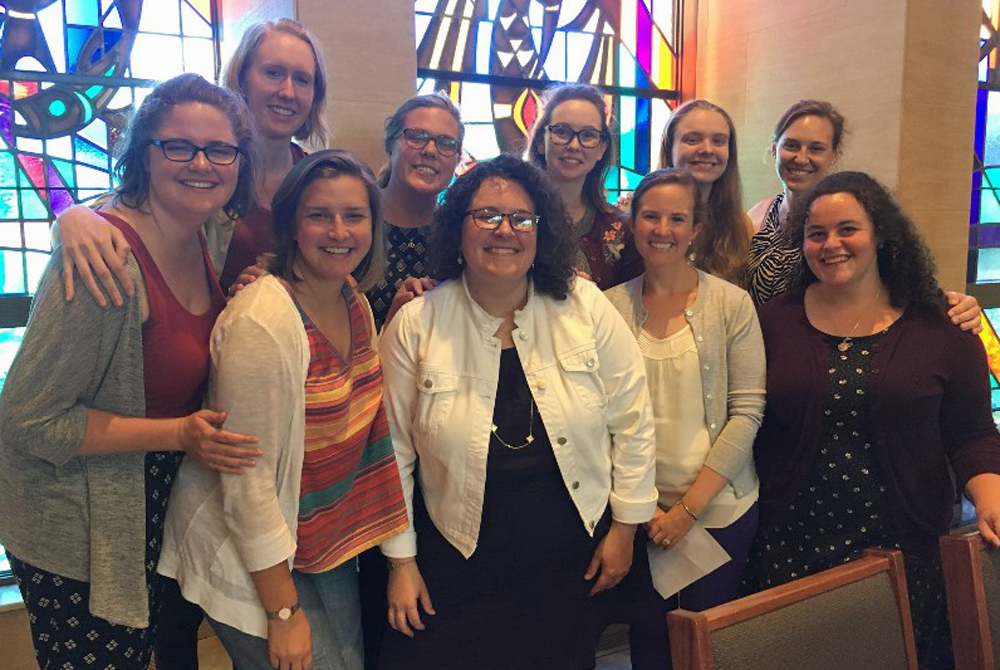
Top row, from left: Allison Connelly, Jessie Bazan, Liz Palmer, Eliza Biddle, Ellen Jewett, and Breanna Mekuly. Bottom row, from left: Lisa Cathelyn, Meghan Dandrea, Teresa Coda, and Jacqueline Small (Provided photo)
For Bazan, the book was also an opportunity to share the sense of hope the women at the institute were able to cultivate, despite the weight of the topics they discussed.
"What impressed me though about our time together in Erie was how overwhelmingly hopeful we were as a group. … There was this sense of hope always, that we can keep going, we are going to keep going, we're going to keep supporting each other through this," Bazan said. "We wanted to bring that out in the book too. When we think about these big themes — community, truth telling, patriarchy — they're big and heavy, but we wanted to share the hope in that as well."
Coda said that another core theme of the book is the importance of intergenerational communication, which she hopes to carry into her own ministerial career.
"I work largely with youth groups, but also I do a lot of adult faith formation," Coda said. "So, what the book has inspired in me is this desire to bridge these two different silos. There are so many wonderful elderly and adult women in our parish, and so many amazing teenage girls, and I think with me a big part of this is trying to bring them into conversation together. This experience has shown me the value of that."
Cathelyn also noted that while she wanted to make the book "really accessible to a wide audience," she also acknowledged that its perspective is limited because all of the writers involved are white women with advanced degrees.
"[We] recognize those limitations and that it's … not comprehensive of the church experience as women, but also it is a conversation starter," Cathelyn said. "We've been in conversation with one another … to really think about the next step of bringing it to parishes, bringing it to schools, bringing it to women's groups. We have some big dreams for what that could look like, but it's still in formation."
Bazan said that in correspondence with Chittister over the course of the project, Chittister expressed "excitement and pride" about the book.
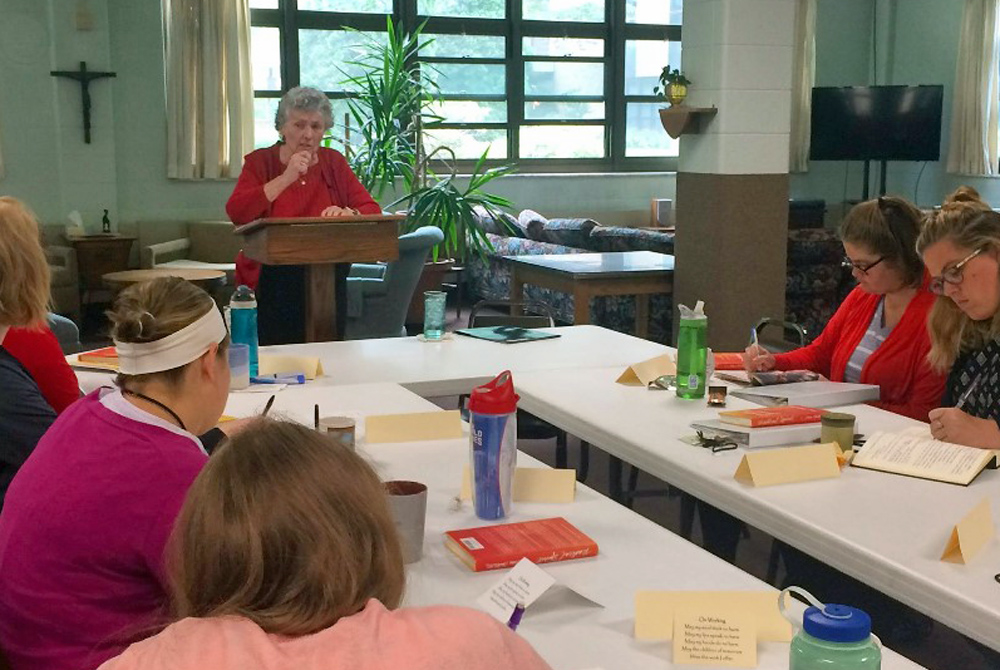
Benedictine Sr. Joan Chittister speaks to attendees of the Joan Chittister Institute for Contemporary Spirituality, held June 17-30 at Mount St. Benedict Monastery in Erie, Pennsylvania. (Provided photo)
"I got the sense while we were in Erie, and also through this process, that it was really important for Joan to know she was passing on her legacy to young women theologians going forward," Bazan said. "I'm sure she knows that, to the extent that she knows she has such a big following. But to be so intimately in dialogue with other young theologians, who will continue the work that she is doing for women's rights and women's inclusion in the church, was really powerful for her."
Bazan said that ultimately, she and the other writers on the project hope that readers will "feel free and empowered to speak their truth and to know that their truth and their stories matter."
"We hope that our book models … the transparency and accountability that we want to see, and that it doesn't have to come from a heady, lofty theological education," Bazan said. "It comes from being ourselves, who God created us to be. So, if even one or two readers can come away thinking that, that'll be a big win."
[Alexandra Greenwald is a freelance religion reporter and writer based in Chicago.]
Advertisement







